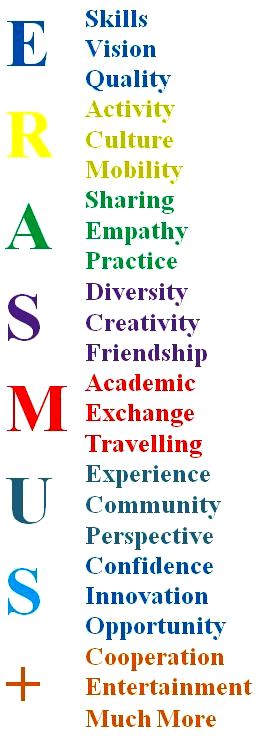What is ERASMUS+ Program?
The Erasmus+ programme aims to boost skills and employability, as well as modernising Education, Training, and Youth work. The seven year programme will have a budget of €14.7 billion; a 40% increase compared to current spending levels, reflecting the EU's commitment to investing in these areas.
Erasmus+ will provide opportunities for over 4 million Europeans to study, train, gain work experience and volunteer abroad.
Erasmus+ will support transnational partnerships among Education, Training, and Youth institutions and organisations to foster cooperation and bridge the worlds of Education and work in order to tackle the skills gaps we are facing in Europe.
It will also support national efforts to modernise Education, Training, and Youth systems. In the field of Sport, there will be support for grassroots projects and cross-border challenges such as combating match-fixing, doping, violence and racism.
Erasmus+ brings together seven existing EU programmes in the fields of Education, Training, and Youth; it will for the first time provide support for Sport. As an integrated programme, Erasmus+ offers more opportunities for cooperation across the Education, Training, Youth, and Sport sectors and is easier to access than its predecessors, with simplified funding rules.
Objectives of Erasmus+
- To achieve a significant increase in student and staff mobility between European Higher Education Institutions,
- To promote broad and lasting inter-institutional co-operation,
- To contribute to the concept of a people's Europe,
- To contribute to the economic and social development of Europe through the creation of a significant number of higher education graduates with direct experience of intra- European cooperation.

